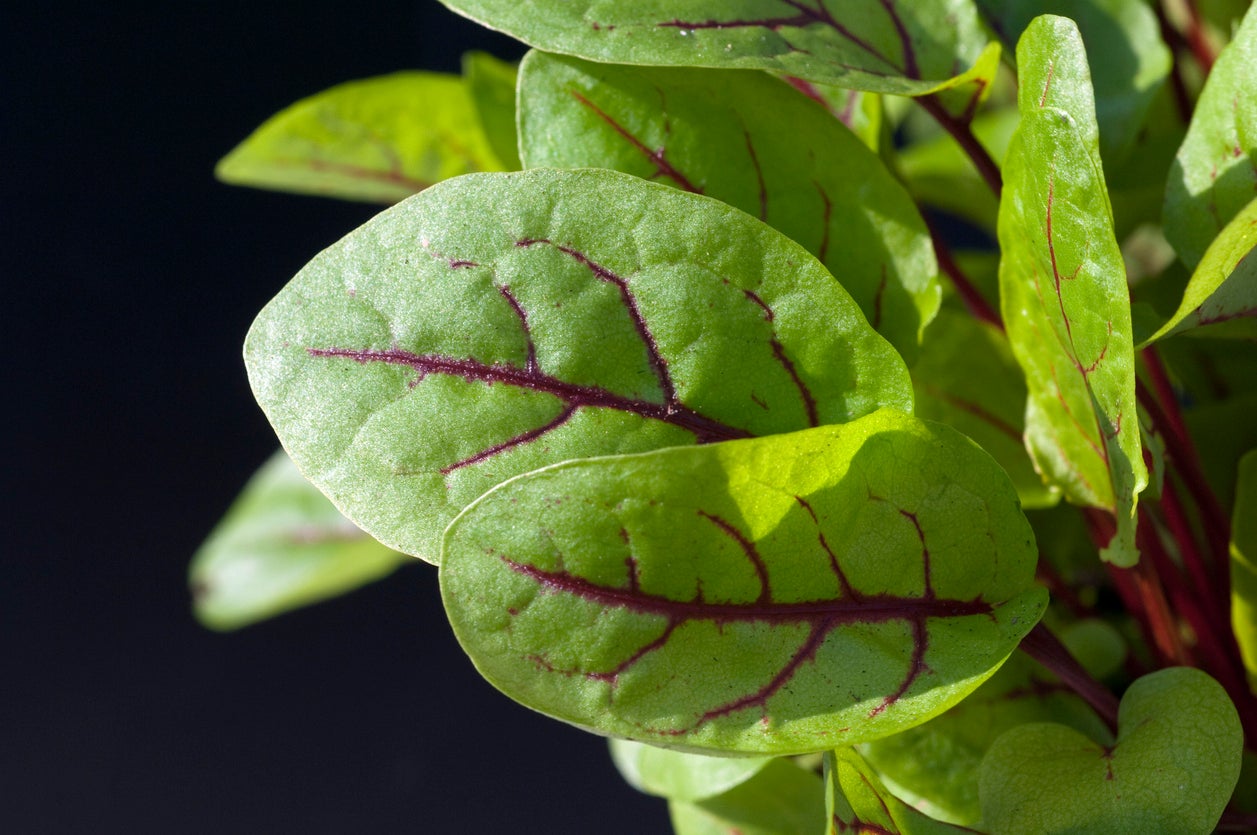
Have you ever heard of the plant with the name of bloody dock (also known as red veined sorrel)? What is red veined sorrel? Red veined sorrel is a decorative edible that is related to French sorrel, the type that is more commonly grown for use in cooking. Interested in growing red veined sorrel? Read on to learn how to grow red veined sorrel and tips for bloody dock care.
What is Red Veined Sorrel?
Bloody dock plant, aka red veined sorrel (Rumex sanguineus), is a rosette forming perennial from the buckwheat family. It generally grows in a clumping mound that reaches around 18 inches (46 cm.) in height and is just as wide.
Bloody dock plant is native to Europe and Asia but has naturalized in some areas of the United States and Canada. Wild growing red veined sorrel can be found in ditches, clearings, and forests.
It is cultivated for its lovely green, lance-shaped leaves that are marked by red to purple veining, of which the plant gets its common name. In the spring, the reddish stems bloom with tiny star-shaped flowers in clusters growing up to 30 inches (76 cm.) in height. Flowers are green at first emergence then darken to a reddish brown, followed by a similarly colored fruit.
Is Bloody Dock Edible?
Bloody dock plants are edible; however, some caution is advised. The plant contains oxalic acid (so does spinach) which may cause stomach discomfort when ingested or skin irritation on sensitive people.
Oxalic acid is responsible for giving red veined sorrel a bitter lemon flavor and in large quantities can cause mineral deficiencies, specifically calcium. Oxalic acid is minimized when cooked. It is suggested that people with pre-existing conditions avoid ingesting.
If you are going to harvest red veined sorrel as a vegetable, harvest the tender young leaves that can be eaten raw or cooked as you would spinach. Older leaves become tough and bitter.
Sign up for the Gardening Know How newsletter today and receive a free copy of our e-book "How to Grow Delicious Tomatoes".
How to Grow Red Veined Sorrel
Bloody dock plants are hardy to USDA zones 4-8 but can be grown as annuals in other areas. Sow the seeds directly into the garden in the spring or divide existing plants. Situate the planting in full sun to partial shade in average to moist soil.
Bloody dock care is minimal, as this is a low maintenance plant. It can be grown around ponds, in a bog, or in a water garden. Keep the plants moist at all times.
The plant can be invasive in the garden if allowed to self-sow. Remove the flower stalks to prevent self-seeding and promote bushy leaf growth. Fertilize once a year in the spring.
Common issues include slugs, rust, and powdery mildew.

Amy Grant has been gardening for 30 years and writing for 15. A professional chef and caterer, Amy's area of expertise is culinary gardening.
